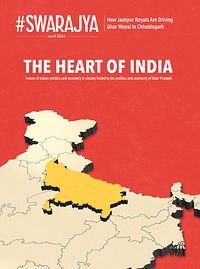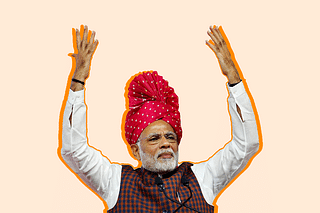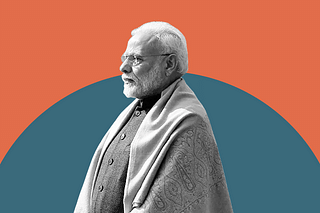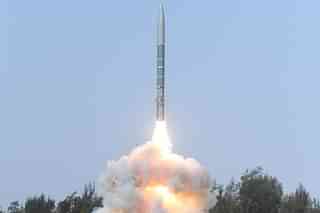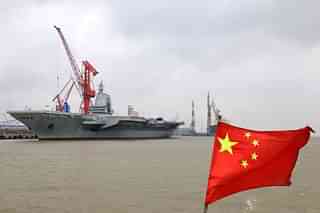World
Maldives: Election Victory Gives President Muizzu A Chance To Tone Down Anti-India Rhetoric
Ujjwal Shrotryia
Apr 22, 2024, 05:16 PM | Updated 05:16 PM IST
Save & read from anywhere!
Bookmark stories for easy access on any device or the Swarajya app.
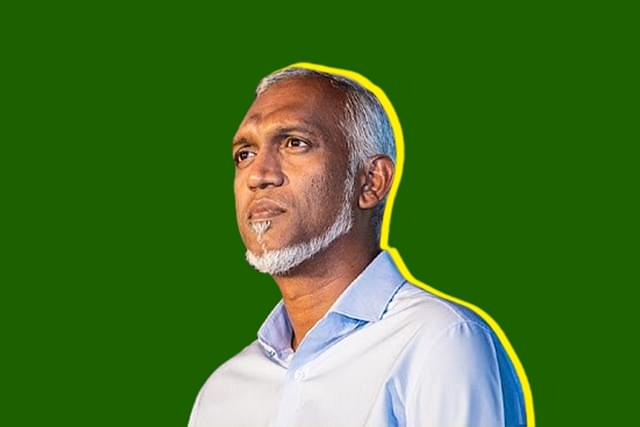
President Mohammed Muizzu's resounding victory in the elections for the Maldivian parliament — the Majlis — gives him an opportunity to tone down anti-India rhetoric.
His party, the People National Congress (PNC), won a landslide victory in the Majlis, winning 65 of the 93 total seats up for grabs, leaving the main opposition party, the Maldives Democratic Party (MDP), with just 12 seats.
Until now, the Majlis, which was dominated by the MDP and its allies, had some say in the working of the Maldives government and was able to block some of its moves.
For instance, the opposition was able to block the appointment of three members in Muizzu’s cabinet for three crucial posts, namely, Minister for Islamic Affairs, Housing, and the Attorney General.
Now this victory gives Muizzu complete control over the polity of the Maldives.
Since his victory in last year's Presidential elections, accomplished riding on the back of an anti-India, India-Out campaign, President Muizzu has taken multiple actions that have shifted the Maldives from its earlier India-first policy towards a pro-China one.
For example, every Maldivian president after winning elections has chosen India as his first pit stop.
Breaking with tradition, Muizzu chose Turkey to be the first nation to visit, followed by China, giving clear indications that China, not India, will be the first choice for the Maldives. It has been more than six months since, but there are no talks of a Muizzu visit to India.
His government refused to renew a hydrographic survey agreement with India, instead choosing to allow a Chinese spy ship to dock in Male, despite India’s vehement objections, and also allowed it to do a survey of the Maldives' exclusive economic zone (EEZ).
Some of his ministers also mocked India, posting racist comments against Indians and derogatory remarks against Prime Minister Narendra Modi on X (formerly Twitter) when PM promoted tourism in Lakshadweep Islands.
Muizzu is also forcing out 90-odd serving Indian armed forces personnel stationed in the Maldives to maintain and service equipment gifted by India to the Maldives — one Dornier Do-228 aircraft and two Dhruv helicopters.
Muizzu wants all Indian personnel to leave Maldives by 10 May.
India has complied with this dictate and replaced them with civilian personnel. The second batch of soldiers just came back last week.
The presence of these personnel was used as a bogey by Muizzu and his party in the election campaign as evidence of India exercising undue influence in the Maldives and meddling in Maldives' internal affairs.
Muizzu, in fact has been doubling up on his pro-China image and is cosying even further to China, disregarding all Indian interests.
It has already signed a free-trade agreement and a security pact with China. There are rumours that China might be constructing a naval base in the Maldives under the guise of an agricultural project at Uthuru-Thila-Falhu (UTF) atoll.
It is understandable that smaller nations surrounded by bigger nations try to play one big nation against another to extract the maximum benefit from both.
Given that India is the largest nation in the neighborhood, politicians will always find a convenient enemy in India to whip up nationalistic rhetoric to come to power.
We have seen this kind of anti-India rhetoric from both Nepal and Sri Lanka.
However, geographic and economic realities and India’s size ensure that nobody permanently aligns against India's interests.
And when they do, they suffer the consequences.
Former Maldivian president Abdullah Yameen (Muizzu's PNC party's ex-leader) is a case in point. He went too deep into China’s embrace and took extreme positions against India. He masterminded the India Out campaign.
He lost power, went to jail for more than two years on charges of graft, money-laundering, and bribery, and was disqualified from contesting elections again.
Other examples include Nepal’s K P Sharma Oli and the Rajapaksas in Sri Lanka, both of whom lost power.
Already the economic and geographic realities are coming to the fore in the Maldives case, as well.
Just this month India allowed the export of essential commodities like eggs, potatoes, onions, sugar, rice, wheat flour and pulses to Maldives. Last month, it asked for debt relief on a $400 milllion debt owed to India.
These developments show that the Maldives is still dependent on India for many of its needs and simply cannot do without India.
Now that Muizzu has won the elections and has complete control over its executive and legislature, it's the right time to tone down his anti-India rhetoric and work constructively with India, else the same fate as of Yameen awaits Muizzu.
Save & read from anywhere!
Bookmark stories for easy access on any device or the Swarajya app.
Editorial Associate at Swarajya. Writes on Indian Military and Defence.
Introducing ElectionsHQ + 50 Ground Reports Project
The 2024 elections might seem easy to guess, but there are some important questions that shouldn't be missed.
Do freebies still sway voters? Do people prioritise infrastructure when voting? How will Punjab vote?
The answers to these questions provide great insights into where we, as a country, are headed in the years to come.
Swarajya is starting a project with an aim to do 50 solid ground stories and a smart commentary service on WhatsApp, a one-of-a-kind. We'd love your support during this election season.
Click below to contribute.
